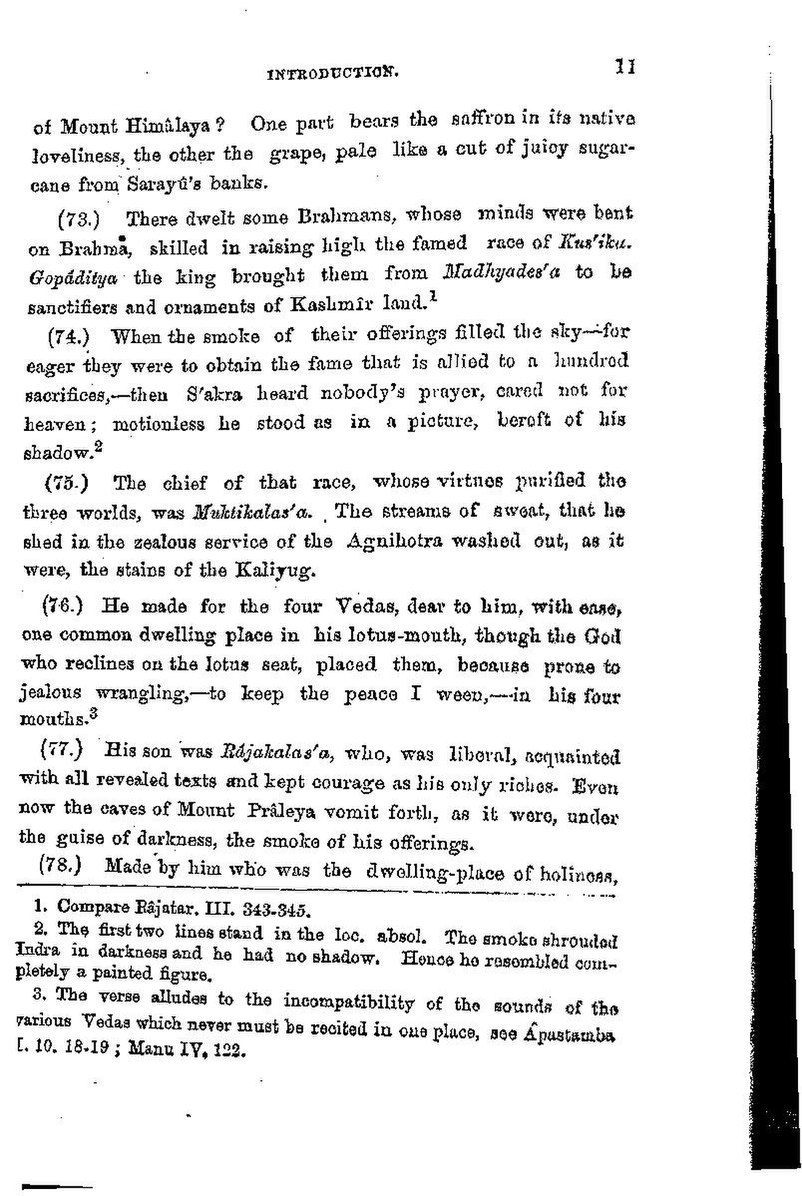INTRODUCTION.
11
of Mount Himalaya ? One part bears the saffron in its native
loveliness, the other the grape, pale like a cut of juioy sugar-
cane from Sarayu's banks.
(73.) There dwelt some Brahmans, whose minds were bent
on Brahma, skilled in raising high the famed race of Kus'iku.
Gopáditya the king brought them from Madhyades'a to be
sanctifiers and ornaments of Kashmir land.²
(74.) When the smoke of their offerings filled the sky-for
eager they were to obtain the fame that is allied to a hundred
sacrifices, then S'akra heard nobody's prayer, cared not for
heaven; motionless he stood as in a picture, beroft of his
shadow.2
(75.) The chief of that race, whose virtnes purified the
three worlds, was Muktikalas'a. The streams of sweat, that he
shed in the zealous service of the Agnihotra washed out, as it
were, the stains of the Kaliyug.
(76.) He made for the four Vedas, dear him, with ease,
one common dwelling place in his lotus-mouth, though the God
who reclines on the lotus seat, placed them, because prone to
jealous wrangling,-to keep the peace I ween,-in his four
mouths.3
(77.) His son was Rájakalas'a, who, was liberal, acquainted
with all revealed texts and kept courage as his only riches. Even
now the caves of Mount Prâleya vomit fortlı, as it were, under
the guise of darkness, the smoke of his offerings.
(78.) Made by him who was the dwelling-place of holiness,
1. Compare Râjatar, III. 343-345.
2. The first two lines stand in the loc. absol. The smoke shrouded
Indra in darkness and he had no shadow. Hence he resembled com-
pletely a painted figure.
3. The verse alludes to the incompatibility of the sounds of the
various Vedas which never must be recited in one place, see Apustamba
[. 10. 18-19; Manu IV, 122.
पृष्ठम्:विक्रमाङ्कदेवचरितम् - बिल्हण.pdf/१५
एतत् पृष्ठम् अपरिष्कृतम् अस्ति

